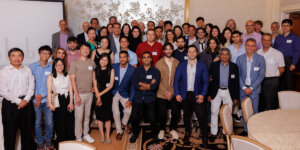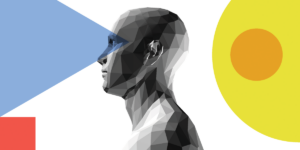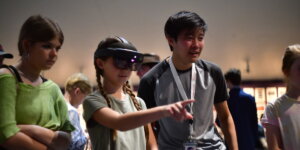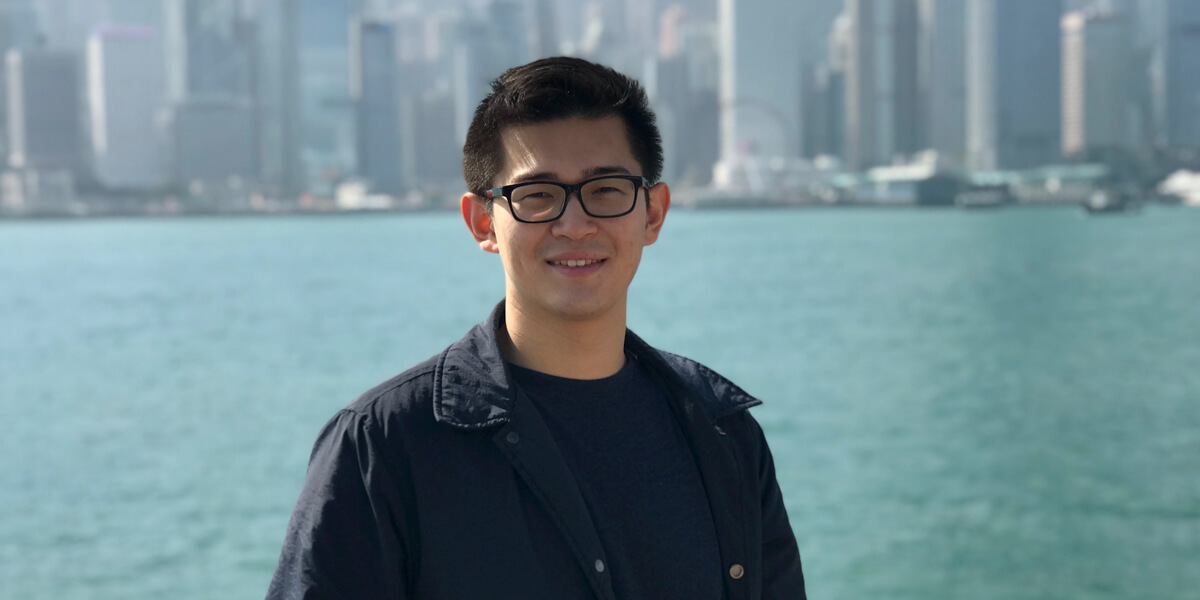
COMPUTER SCIENCE ALUMNI JASON LIN. PHOTO/COURTESY OF JASON LIN.
Canadian-born Jason Lin was raised in Hong Kong but grew up all over the world. His love for sciences, math and business has led to a successful career working with Google DeepMind, advising the United Nations (UN) and launching his own AI startup (FABER). Jason gave us an update on life after graduation. Answers have been edited for style and clarity.
After graduating from USC which opportunities were most exciting?
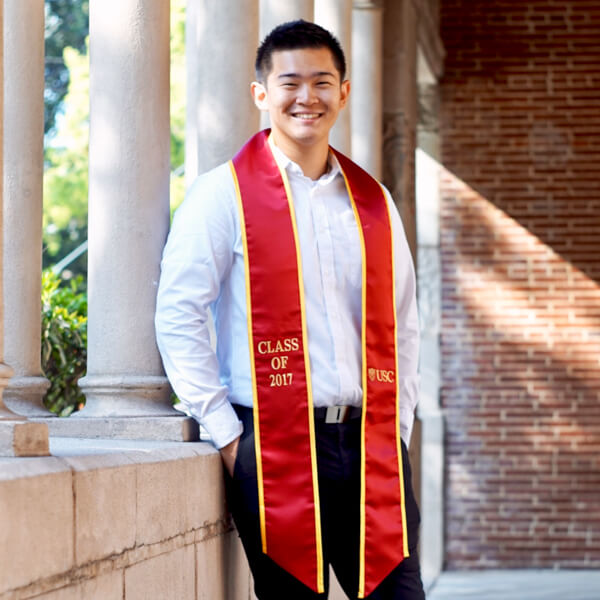
LIN HAS FOND MEMORIES AS A TROJAN. PHOTO/COURTESY OF JASON LIN.
Steve Jobs said, “you can only connect the dots looking backwards.” Enthused about electronics, I interned on the Apple macOS team and learned from Jobs’ collaborators. I then wanted to live in New York, and found the perfect opportunity with Spotify. As my interests shifted towards robotics, working alongside Sergey Brin at Google X was career defining, and DeepMind continues my AI pursuit.
Tell us about your startup FABER. What advice can you give tech entrepreneurs?
FABER discovers restaurants. Like Spotify’s “Discover Weekly,” it uses recommendation systems, computer vision, and machine learning on graphs to curate personalized food feeds. Two pieces of advice: build an A-star team around you, and figure out the product market fit. Technical founders can get carried away perfecting their vision. But unless there’s already a market, your “product” in mind likely won’t be the final form users want. Assembling a super team is therefore important to vet and execute your strategy. In short: iterate fast, stay scrappy, validate your minimum viable product (MVP) and repeat.
Tell us about your work with Google DeepMind and the company’s global impact.
My work at DeepMind is two-fold: as a researcher I prototype machine learning algorithms and publish breakthroughs at conferences. As a consultant, I develop AI solutions for Google products through user studies, data collection, and experimentation. I have a passion for education and am mentoring a first-generation Colombian student under DeepMind’s diversity scholars program to expand access to underrepresented demographics.
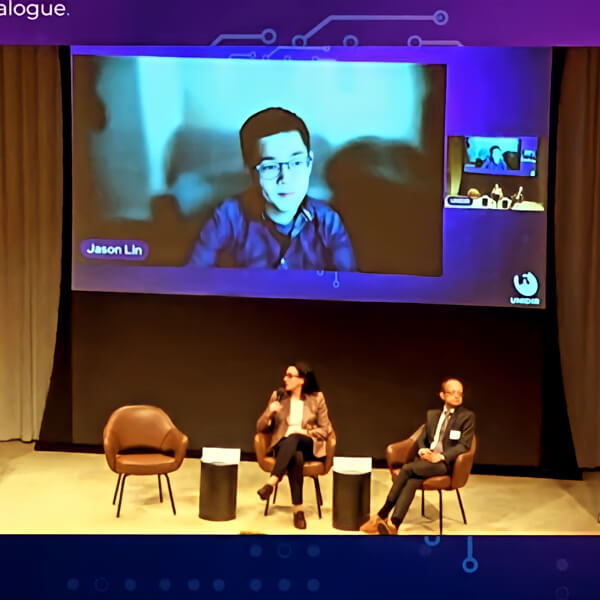
LIN SPEAKING AT THE UNITED NATIONS. PHOTO/COURTESY OF JASON LIN.
Tell us about your talk at the UN and your participation in the “Use of AI in Decisions of Force,” Expert Panel.
Following my autonomy innovations at Lyft and Google X, as a Stanford Existential Risk Initiative fellow, the United Nations Institute for Disarmament Research invited me to a workshop series. Along with global experts from Microsoft VP to faculty Deans, we advise the UN Security Council on peacebuilding through preventative discussions of AI for military use.
Which of your accomplishments has been the most gratifying?
It’s especially gratifying to see my work at DeepMind bring real benefits to the world. Although I credit my success to pioneering Lyft’s 3D LiDAR self-driving detector and TensorFlow’s first-ever CUDA for mobile library at Google X, both challenging me to build industry-scale AI products from zero to one. I’ve grown tremendously as a manager by hiring and mentoring a team of eight engineers and designers as cofounder of FABER, and am heart-warmed to see our alumni with fledgling careers at Meta, Google and CMU today.
What was your proudest moment as a Trojan?
I capped off an exhilarating three-year hackathon sprint of over twenty appearances before two Stanford victories on an all-USC team, winning Facebook and Amazon prizes while earning a place to compete in Facebook’s Global Hackathon, where we placed third. Fight-on!
Published on November 28th, 2022
Last updated on November 28th, 2022






